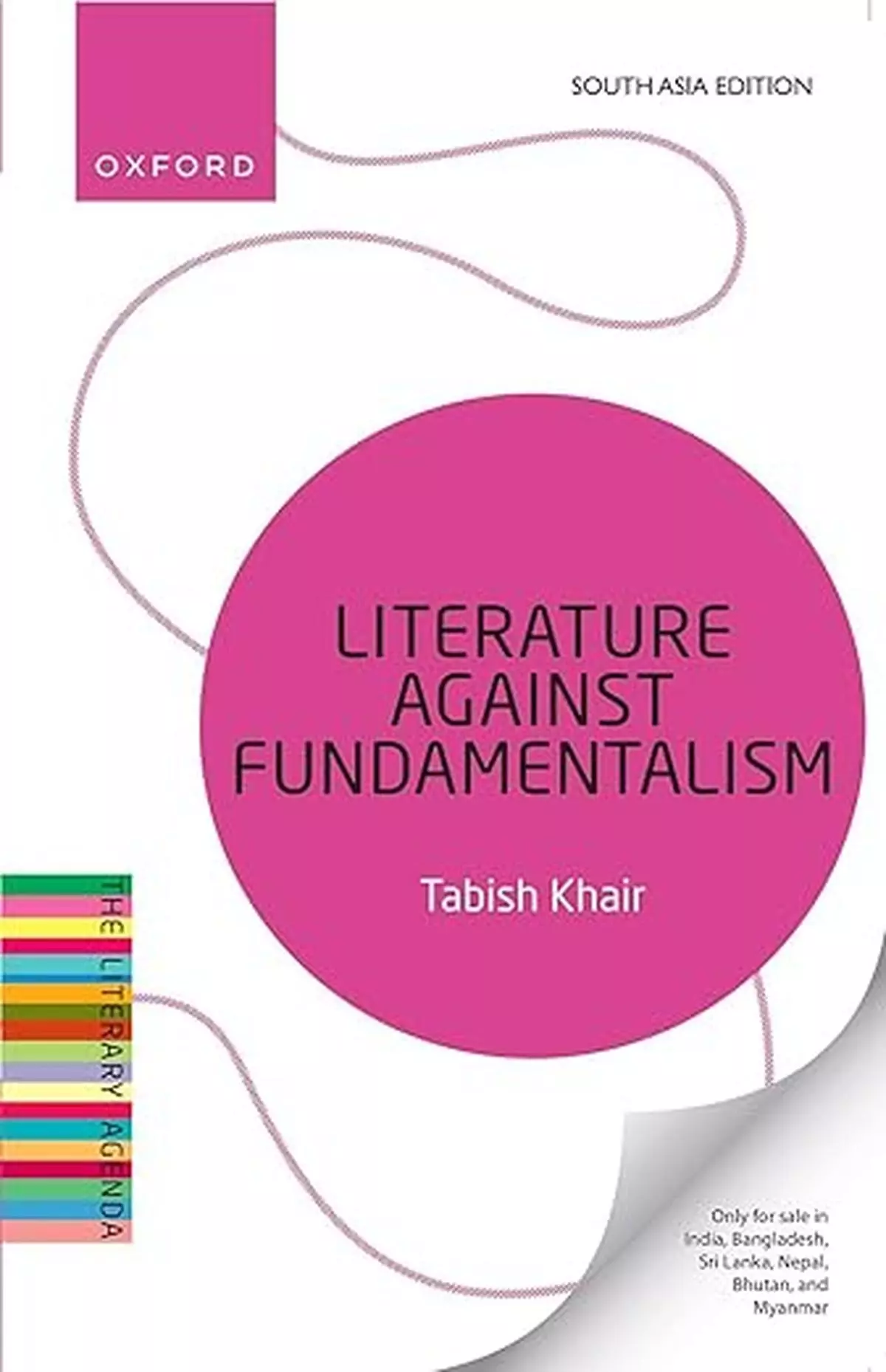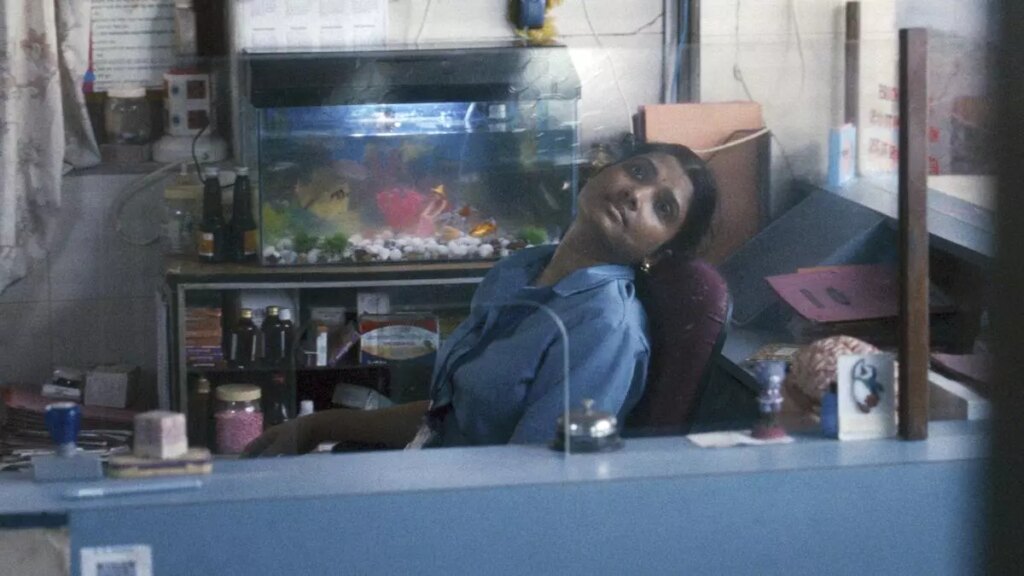The book’s title, Literature Against Fundamentalism, together with the glossy, abstract cover had made me expect a dense monograph packed with academese. What I found instead was a manifesto for literature and a guide to deep reading.
Tabish Khair begins with the example of Anton Chekhov’s beautiful short story “The Requiem”, which revolves around an argument over the word “harlot”. In a jargon-free manner, he directs our attention to the non-deterministic ways in which Chekhov deploys language to create meaning. Chekhov’s story pulls the reader in, helping advance Khair’s premise that a deep reading of literature saves us from getting trapped in the desire for certainty and boosts our immunity to fundamentalist rhetoric. By not being hung up on “academic meta-languages” that strive to contain the study of literature to a “select priesthood”, he manages to address a wider audience.
Literature Against Fundamentalism
By Tabish Khair
Oxford University Press
Pages: 144
Price: Rs.491
The language of literature is very different from that of academic papers or news stories. Language here refers to a mode of expression that evokes meaning through its choice of words, their sounds, repetitions, silences, and gaps. The power of Chekhov’s story lies in its ability to capture the inherent instability of words: the way they can have different meanings for different people. For instance, the word “idiot” likewise can be a rebuke, an excuse, or an endearment, depending on the context. By pointing at the shifting meanings of words, Chekhov’s story directs us to the essence of literature.
Non-literary modes of wielding language—reportage, academic research, critique, religious rhetoric—work by marshalling facts to arrive at some “truth”. Literature goes the other way round, capturing the whimsical, the ambiguous, the subjective to discover the universal. Without a deep understanding of the fluidity and multiplicity of meanings in literary language, literature cannot be written or even read properly.
Also Read | Romain Rolland wrote India’s spiritual story through its great thinkers
In our times, statistics, algorithms, doctrines claim to contain the whole truth. But literature says that truth lives discreetly, in things that refuse to fit neatly. That is why literature’s language is exploratory, full of expressed doubt, playful curiosity. By arguing with everything they put down, the literary writer constructs a multilayered scaffolding of well-examined details.
Felt meanings
With examples from Hamlet, Huckleberry Finn, and Wuthering Heights, Khair shows how the professed meaning is often at odds with the felt meaning (madness, bravado, jealousy, confusion). The reader must tease out these nuances, not just in the context of the story in hand but also in different times and situations. The fluidity of a literary text makes new readings possible in times entirely dissimilar to the one in which the work was originally written.

Tabish Khair suggests that a deep reading of literature saves us from getting trapped in the desire for certainty.
| Photo Credit:
By special arrangement
Khair’s plea for literature ends with an interesting take on the “science vs humanities” debate. He makes the important point that the fabled predictive powers of sciences occur in the context of a more or less “stable and known” reality out there, whereas the humanities operate within rapidly changing political-economic structures.
Literature has to be read. A summing-up of the whys and hows serves no purpose, says Khair. So, to avoid falling into the trap of summing up, let me end by focussing on the ways in which the book made me think anew about the use of language in literary works. He talks of Shakespeare. I was reminded of Ghalib. The words of both yield to new readings without the loss of depth and meaning.
The complexity of literary meaning, Khair says, frightens the fundamentalists, with their streamlined notions of truth and falsehood. For the same reason, fundamentalists cannot create art: the coming together of stereotypical characters with heavy-handed, sacrosanct narratives makes for polemic, not art. Concurrently, in a listicle-centric, attention-deficit world, the growing inability to deep read translates into a growing inability to appreciate life’s complexities.
Strength in multiplicity
Khair’s multiple readings of madness in Hamlet brought to mind a passage from Ernest Hemingway’s novel For Whom the Bell Tolls where an injured El Sordo is holed up with his dead horse on a hill “the shape of a chancre”. Not afraid of death, El Sordo reflects that dying is nothing, whereas “living was a hawk in the sky. A field of grain blowing in the wind on the side of a hill. An earthen jar of water in the dust of threshing.…” By focussing on beauty in the midst of death, Hemingway evokes the colossal waste of war.
Also Read | We should prepare for many great calamities: Pankaj Mishra
Similarly, great movies are powerful because they say more than what they explicitly spell out. I was reminded of Payal Kapadia’s All We Imagine as Light, where the “unsaid”, the things waiting to happen, cast a shadow on moments of youthful romance. We feel these moments deeply because we participate in the imagining of them. The hope we are left with at the end is the result of an unverbalised transfiguring.
Timeless literature taps into and enlarges our capacity to feel, imagine, and empathise. Khair’s book is for anyone who wants to appreciate the language of literature. While it is true that a passing familiarity with Bakhtin, Foucault, and Saussure can make the appreciation of chapters like “Fundamentalism, Literature and God” easier, the book manages to speak to the lay reader most of the time.
Varsha Tiwary is a Delhi-based writer and translator. She recently published 1990, Aramganj, a translation of the bestselling Hindi novel Rambhakt Rangbaz.
Source:https://frontline.thehindu.com/books/review-of-tabish-khairs-literature-against-fundamentalism/article69210537.ece

